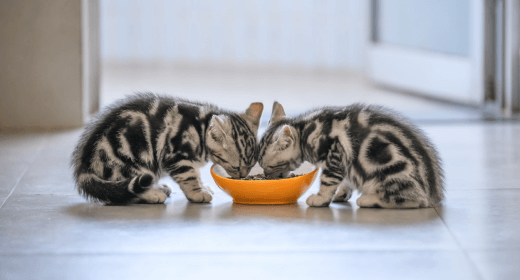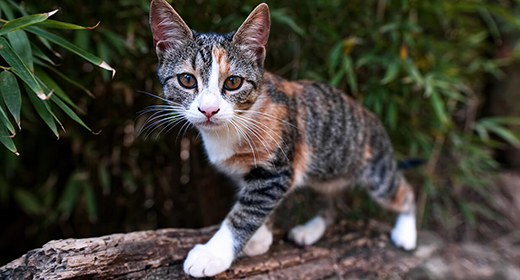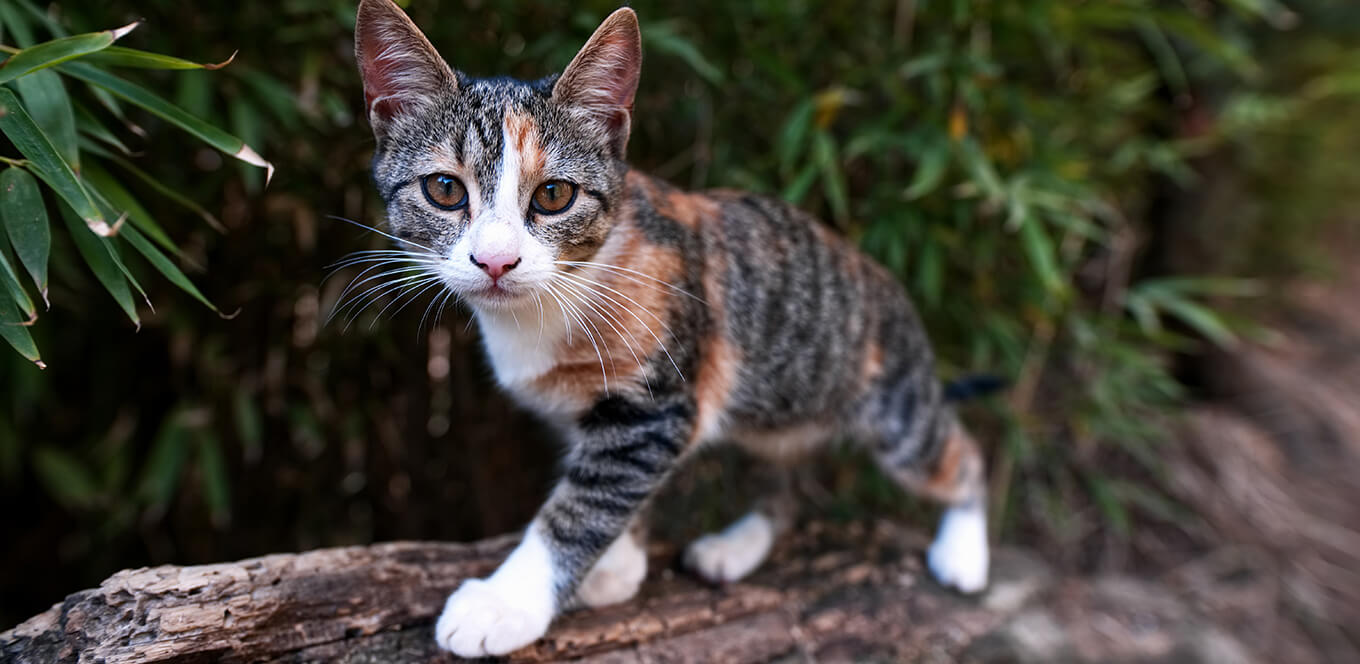

Before you assume that by-products in kitten food are bad thing, here are some facts. In common usage, a by-product is something that is just that—a side product from the making of another product. By-products are not by definition poor quality. For instance, gingerbread cookies wouldn’t be the same without molasses, which is a by-product of sugar manufacture.
In relation to IAMS™ kitten foods, such as IAMS ProActive Health™ Kitten, by-products are generally parts of the animals that are not the muscle meat preferred by most American consumers. The term refers only to the anatomic parts included, not to the nutritional quality of the parts.
While many Americans may not be used to eating these animal parts themselves, it is important to realize that many of the items included in by-products (e.g., organ meats) may be higher in essential nutrients—amino acids, minerals, and vitamins—as well as more palatable to pets than the skeletal muscle meat.
In addition to nutritional benefits, inclusion of these ingredients in pet foods reduces waste and likely has environmental benefits as the livestock industry does not have to produce additional animals just to satisfy the needs for muscle meats to feed pets as well as people. Feeding these nutrient-rich, tasty parts to pets may prevent them from being wasted and allows the entire animal to be put to good use.
Much of the consumer confusion and discomfort surrounding by-products most likely stems from the marketing strategies of some pet food brands and perhaps from the ingredient name “by-product” itself.
It is important to keep in mind that most ingredients in pet foods can vary greatly in quality. In addition, quality cannot be assessed purely on the basis of the ingredient list. All by-products are not the same quality. Neither is all muscle meat. There are very high-quality by-products as well as poor-quality chicken and chicken meal (or beef or pork).
Purchasing food only from reputable manufacturers who are very selective about their suppliers, have full-time, qualified nutritionists, and perform analytical testing to ensure that every ingredient, as well as the finished product, meets their exact nutrient specifications, will help avoid problems due to poor-quality ingredients.


We include fish oil in IAMS™ dry kitten food to help promote healthy skin and a healthy coat in your kitten. Learn more about fish oil and meal, what it does, how it can help your kitten and why it is an important component in all IAMS dry kitten foods.
Fish oil is extracted from fish and is composed of special types of fats. Fish meal, which is used in IAMS dry kitten foods, is a good source of natural fish oil.
Fish oil from deep, cold-water fish contains omega-3 fatty acids. Fatty acids are a smaller component of fat, and omega-3 fatty acids are a type of fatty acid with important nutritional value. Fish oil has a unique fatty acid composition with high concentrations of long-chain omega-3 fatty acids, such as eicosapentaenoic acid (EPA) and docosahexaenoic acid (DHA).
The fatty acids in a kitten’s diet are incorporated into the body’s tissues and are critical for many body functions. For instance, animal cell membranes, including those in the skin, contain fatty acids. Omega-3 fatty acids are responsible for the production of substances that promote healthy skin conditions, especially when balanced with omega-6 fatty acids (found in common ingredients such as chicken fat and corn oil) in a ratio between 5:1 and 10:1.
All IAMS dry kitten foods, such as IAMS™ ProActive Health™ Healthy Kitten, contain fish oil as a high-quality source of omega-3 fatty acids.
Studies conducted by nutritionists at The IAMS Company found significant improvements in skin and coat when cats1 were fed a diet that contained omega-3 fatty acids in a balanced ratio with omega-6 fatty acids versus the same diet without the balanced ratio.
Feeding a complete and balanced diet with a balanced ratio of omega-6 and omega-3 fatty acids is proven to promote healthy skin and a shiny coat. When fed fish oil, cats showed:
1 Data on file, The IAMS Company, 2000.
